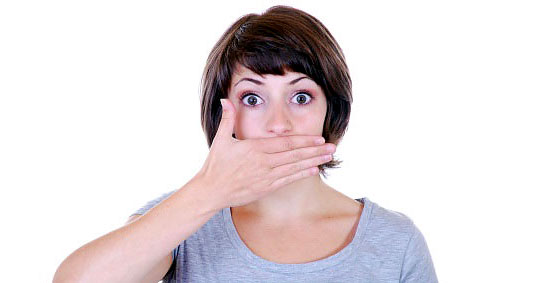6. Excessive sweating
An estimated 2-3% of Americans suffer from some form of hyperhidrosis (excessive sweating), often in the underarms or on the hands and feet.Causes
Excessive sweating can have several causes, explains Mark Whiteley, Consultant Surgeon and Clinic Director at the Whiteley Clinic, London.Taking on board too much liquid can be a big contributor. "Physiological research shows that the average human needs about 1.5L of fluid per day (or 2L if hot), which includes all drinks and water hidden in food," he advises. "Presumably for commercial reasons, bottled water companies have managed to corrupt this message with the advice that people should drink 2-3L of water per day in addition to water gained from other drinks and food, so many people are actually drinking too much and not surprisingly, they sweat to lose excess fluid."
What you drink can also be a problem, especially if you're consuming caffeinated and hot drinks. "Caffeine is a diuretic and a stimulant, which can increase sweating," explains Whiteley. "Having hot drinks -- especially for social reasons and not to quench thirst -- increases body temperature as well as adding extra fluid to the body."
Anxiety and stress can be big culprits. As Whiteley points out, they can create a vicious circle that exaggerates the problem. "People who worry a lot (especially about excess sweating) drive their sweat glands to sweat more."
There can also be medical causes that contribute to excessive sweating. Whiteley points to hyperthyroidism as one of the most common medical explanations, but primary hyperhidrosis (a condition in which people sweat more than usual) can also be to blame. With the latter condition, Whiteley advises that sweating may occur all over the body or it may be restricted to certain areas such as the underarms, face, hands, feet or groin.
Some drugs can trigger excessive sweating. This notably includes anti-depressants, cocaine and amphetamine. Lastly, being overweight can also contribute as fat serves to retain heat, which then has to be lost.
Solutions
Whiteley has the following advice for dealing with excessive sweating in the short term.- Don't drink too much. "The easiest check is your urine," says Whiteley. "It should be yellow. If it is clear and you have a sweating problem, you're probably drinking too much." In particular, he advises limiting your intake of hot and caffeinated drinks.
- Dress appropriately. If you're hiding underneath layers of clothing in a bid to hide your sweating, you're only going to make the problem worse. Instead, Whiteley suggests opting for loose cotton so that air has a better opportunity to circulate. If you're worried about sweat showing on your clothes, go for a color that won't make it so obvious.
- Lifestyle changes. If you're overweight, losing weight can help. Getting rid of stress and anxiety can also reduce nervous sweating. If you're on any drugs or tablets that can cause sweating, speaking to your doctor about changing them.
- Surgical and non-surgical options. Botox injections has been FDA-approved in the US for treating excessive sweating in the armpits and can provide relief that lasts for 6-9 months by blocking the sweat glands so that sweat can't get through. Iontophoresis uses water to conduct an electrical charge to the skin that fights sweat production. It shouldn't be painful but multiple sessions a week are usually required. Whiteley suggests that Endoscopic Thoraic Sympathectomy (ETS) is one of the best long-term cures for excessive sweating hands. This involves cutting the nerves so that they can no longer produce sweat. Outside of the US, Whiteley has been performing Laser Sweat Ablatation since 2009, which has shown an 80% reduction in underarm sweating.






